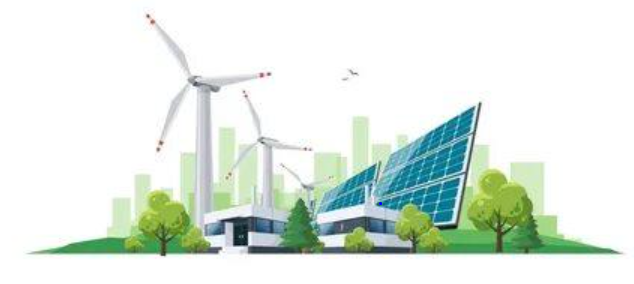Small businesses often struggle to manage rising operational expenses, especially when energy bills take a significant chunk of their revenue. With the growing focus on sustainability and efficiency, energy audits have become a smart investment for small enterprises.
Partnering with solutions like Utility Bidder can simplify evaluating energy systems while identifying areas for savings. This article explores why conducting small business energy audits is essential for reducing costs and boosting profitability. We’ll highlight skills every business leader needs to master energy efficiency and point you toward effective training resources for success.
Essential Skills to Manage and Reduce Utility Costs
Small businesses face many challenges, but mastering the skills to control energy expenses can significantly ease financial strain. Managing business energy effectively requires data analysis, energy usage tracking, and contract negotiation. These competencies empower leaders to evaluate energy systems, identify energy-saving opportunities, and negotiate better business gas prices or business electricity rates.
Understanding Energy Consumption Through Data Analysis
Understanding your energy consumption patterns is the foundation of energy management. Data analysis can highlight how much energy your business uses during peak hours, where energy waste occurs, and which systems need optimisation.
Tools like energy audit checklists can simplify this process. For example, an energy audit might reveal that outdated lighting accounts for 20% of energy waste, prompting a switch to energy-efficient LEDs.
Example: After an audit, a restaurant implemented data-driven changes, switching to energy-efficient refrigeration and saving $2,500 annually. Tracking energy usage also helps forecast potential savings and allocate funds toward upgrades that reduce energy bills and carbon footprints.
Negotiating Better Utility Contracts
Understanding the terms of your utility contracts is another critical skill. Many businesses overpay for energy because they fail to negotiate competitive rates. Mastering negotiation techniques can help secure better business water or gas contract deals. By analysing estimated costs and comparing multiple providers, you can save money while achieving greater efficiency.
Tip: Platforms like Utility Bidder can assist in identifying the best rates, ensuring you’re not locked into a deal that increases your energy prices unnecessarily.
8 Proven Ways to Reduce Energy Prices for Small Businesses
1. Conduct a Business Energy Audit
An energy audit is an evaluation of your energy systems to identify inefficiencies. A business energy audit offers a complete picture of your energy use and pinpoints areas where you can save energy. This can include reducing energy waste, improving energy efficiency, and identifying energy-saving practices like better insulation. For even greater savings, explore Business Energy Comparison to find the best energy deals tailored to your company’s needs.
Stats: According to the U.S. Department of Energy, businesses that perform regular audits can cut their energy bills by 20-30%.
2. Upgrade to Energy-Efficient Equipment
Switching to energy-efficient appliances and systems significantly reduces energy consumption. For instance, replacing traditional HVAC systems with energy-efficient models can lower energy bills by up to 40%.
3. Monitor Energy Use in Real-Time
Using smart meters and tracking tools allows businesses to monitor energy use in real time. This provides insights into energy consumption patterns and helps make informed decisions to save energy.
Example: A bakery tracked energy use during non-operating hours, turning off idle equipment and saving $1,200 annually.
4. Invest in Employee Training for Energy Awareness
Employees play a key role in preserving energy. Simple measures like turning off lights, optimising computer usage, and maintaining proper workspace temperatures can save thousands annually.
Training Resource: Online courses on energy efficiency are available on platforms like Coursera, teaching practical energy-saving techniques to teams.
5. Leverage Renewable Energy Options
Renewable energy options like solar panels reduce long-term energy prices while improving your business’s environmental impact. Financial incentives and tax credits for renewable energy adoption further increase savings.
Explore this article on transparency and efficiency in renewable energy.
6. Optimise Heating and Cooling Systems
Heating and cooling systems consume significant energy, especially during extreme weather. Regular maintenance, sealing windows, and using programmable thermostats can reduce energy waste.
Stat: Optimising HVAC systems can cut energy costs by up to 15%.
7. Install Motion Sensors and LED Lighting
Lighting accounts for a large portion of energy use in commercial spaces. Installing motion sensors and switching to LED lights are cost-effective ways to preserve energy.
Example: A retail store reduced lighting costs by 25% after replacing incandescent bulbs with LEDs.
8. Benchmark Your Energy Costs Against Competitors
Compare your energy bills and contracts to those of similar businesses. This benchmarking can reveal discrepancies in commercial gas prices or business electricity rates, helping you negotiate better deals.
Learn how private investments in off-grid energy can reduce risks.
Quick Tips to Preserve Energy
– Use energy-saving software to monitor systems.
– Perform seasonal maintenance on HVAC units.
– Turn off non-essential equipment after hours.

Read about cost reduction strategies in Uganda’s electricity sector.
Final Words
Investing in energy audits and mastering essential energy management skills is a powerful way for small businesses to control costs, improve efficiency, and reduce their carbon footprint. The potential savings from simple steps like upgrading equipment or tracking energy use can transform financial outcomes.
FAQs
1. What is a business energy audit checklist?
A business energy audit checklist outlines steps for assessing energy systems, including monitoring energy use, identifying inefficiencies, and recommending energy-saving practices. It ensures no area of potential savings is overlooked.
2. How can online learning platforms help with energy management?
Platforms like Coursera and Udemy offer courses on energy efficiency, data analysis, and contract negotiation. These programs provide practical skills for reducing energy waste and saving money.
3. What are the costs of implementing energy-saving measures?
Costs vary based on the solution. For example, installing LED lights costs around $1,000, while solar panels may require $15,000. Both offer substantial long-term savings on energy bills.

